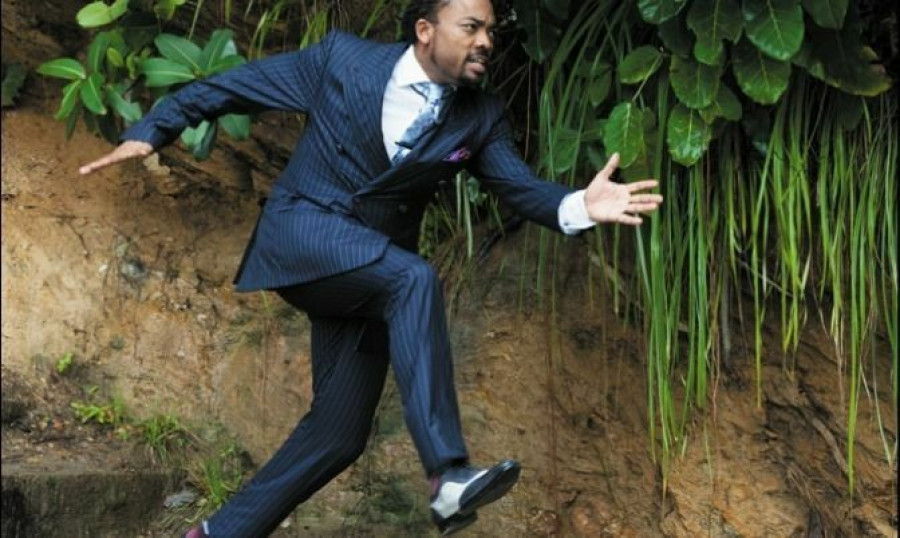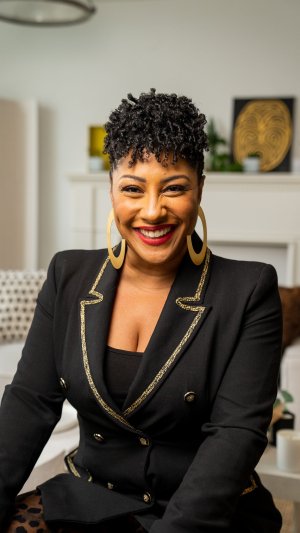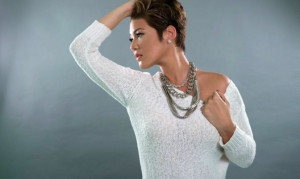Machel is the master behind hit songs like Happiest Man Alive and Epic. He’s performed around the world, he’s performed at the Grammys, he’s sold-out Madison Square Garden five times and released more than 30 albums. But his concert tonight in Toronto is absolutely free. Machel talked with us as he prepared to go on stage at Nathan Phillips Square.
BB: You’ve been in the business since you were a child. Your name is now synonymous with soca music. When you look back at your career when was the moment you knew that this had really taken off? When did you know, ok I'm big!
MM: I’m so busy being positively dissatisfied that I hardly take the time to look back on things. When I was 11 years old I performed with Lord Kitchener in a sold-out show at Madison Square Garden. Being in New York at that age was incredible for me. Buying my first keyboard, starting a band, it was all so exciting. But that feeling you’re talking about really only happened to me last year in Guyana. I was on the balcony of my hotel room looking at the street leading to the stadium and it was rammed with traffic in both directions and I was like wow these people are coming out to see me. And I went back to that childhood feeling of when I started my first band and I thought wow this is crazy. In Guyana of all places, it was a moment I never stopped to appreciate before.
BB: I was watching a video of you performing your first big hit “Too Young To Soca”. You were just nine years old. But looking at your flawless stage presence, it’s clear you were already a star. Did you have the vision even then of what was to come or did you think it was just something you would do for fun?
MM: A lot of people don’t believe this but I never really set out to be an artist. My brother used to practice his guitar and I would sing along to help him out and people would say you should go and perform. But early on in the game, I realized that the youth of our nation were not in love with our culture. Soca was not cool. So from early on my mission was to fix that. That idea really occupied me and I really didn’t think about being famous. I was thinking that this was a science, an equation that I had to figure out; how to put our culture on the map. As a Caribbean people our happiness is key. The joy we put forward every year during Carnival is our offering to the world.
BB: Your performances on stage are incredible! At the 2013 Soca Monarch you arrived in a helicopter, then flew over the crowd in a superman costume with fireworks going off. Where do you get inspiration for all that? Is there a creative team behind all of it or is just you?
MM: There is an entire team of over 75 people that I work with on a daily basis. All our shows come from the concept in my head, my dreams and what I want to say to the fans and to the universe. Sometimes these concepts are huge and it takes dozens of people to make it come to reality.
BB: I want to talk about the music. When you look at reggae and dancehall, those genres have crossed over into mainstream by collaborating with pop and rap artists. I know your goal is to make soca as widely known as possible and you’ve collaborated with a bunch of different artists from Busta Rhymes to Pitbull. But we’re not seeing the same kind of mainstream crossover with soca. Why do you think that is?
MM: Only time. Everything takes time. We’ve had collaborations on a small scale. The thing is, our music is built around Carnival. But as artists we have grown to see a different purpose aside from Carnival, which is to make soca worldwide. And I think the process is still very young. It hasn’t been a very long time since we started focusing on that. It’s really only in the last 20 years with people like David Rudder who started stepping outside the box. My goal is to keep pushing. So I wouldn’t say we’re not seeing it. We’re seeing people like myself and Bunji getting nominated for major awards, and our collaborations are happening on a more regular basis. So we are seeing it.
BB: You’re celebrating a big birthday this fall, the big 4-0. What’s in Machel’s future? Do you see yourself on stage for another 30 years? Or is there something else you want to do?
MM: Finding the time for your own personal goals is hard. When you become famous and there’s a demand for you and a fan base to attend to and to grow with, it’s a delicate dance to do the things you dream of. But there’s a lot I do outside of music. I write books and I just recently started to get into the mas business. I do a lot of charities, and I have plans for my own foundation. I also work on a lot of start-up companies with young people and ideas in technology and around the music business. I recently signed on to this steel pan project. It’s a competition called the V-pan. So I’ve teamed up with this innovative company that introduces authentic pan samples digitally. Young people without access to major steel bands can create pan music at home on their computers. Then this competition allows their pieces to be heard and the winners get played by a major steel band.
But all these different things I do point back to my purpose which is to develop the culture in my country. That’s what I’m thinking about when I’m on stage, when I’m off stage, when I’m at home, on vacation, with family, wherever, that mission is always within me.
Machel Montano takes the stage at 9:30pm at Nathan Phillips Square in Toronto.

 By
By 

![[REVIEW] Toni Braxton was woman enough for me](/media/k2/items/cache/9af1826b772c4d0c3b40cc25c52f7637_S.jpg?t=20181120_201448)
